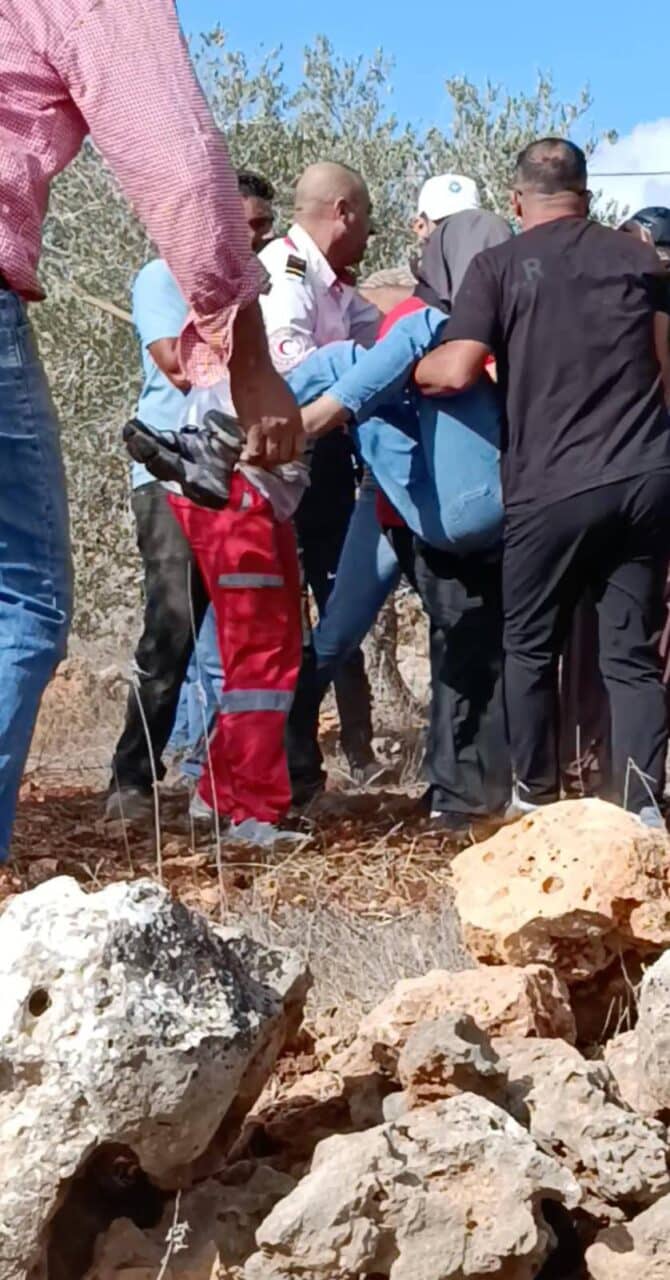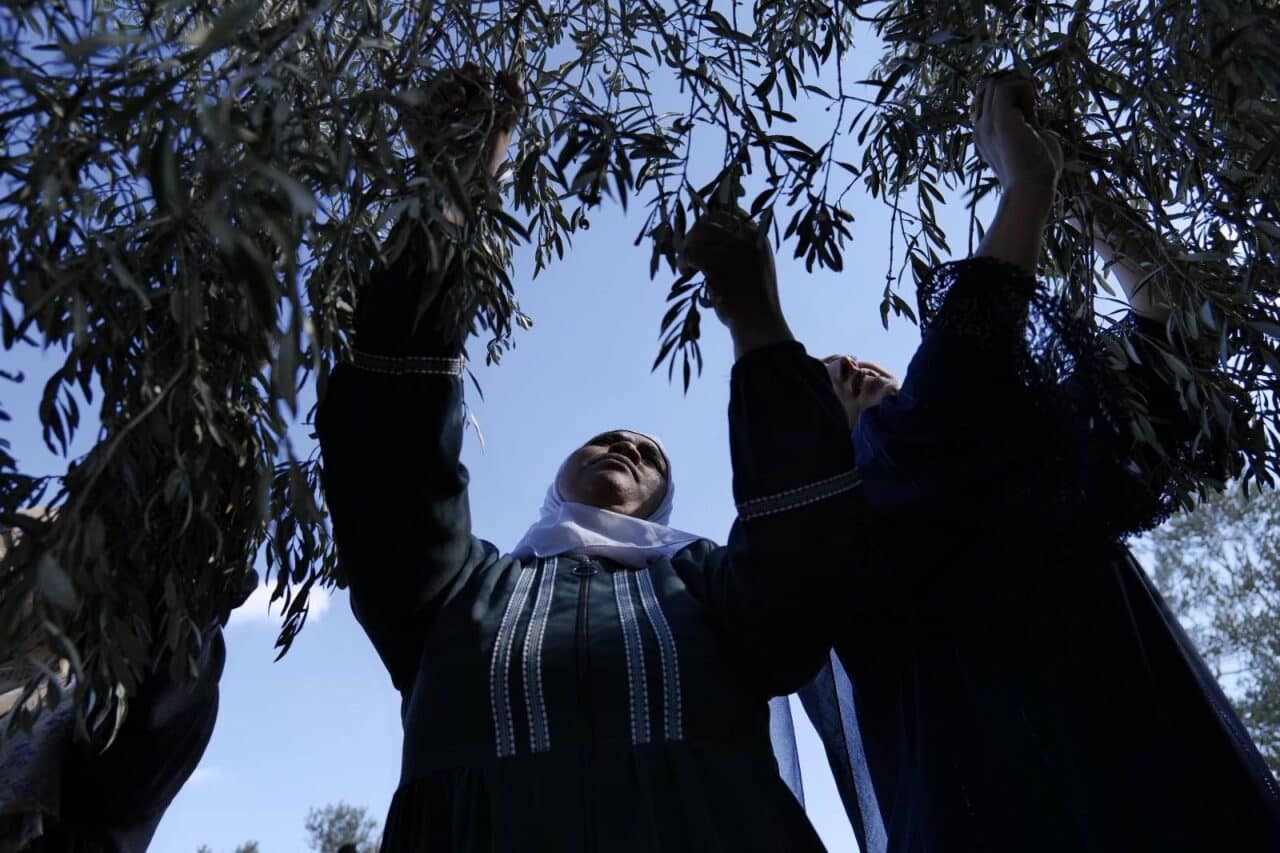Category: Reports
-
Al-Khalil: Activism on the Edge
October 22 “Hello, they beat this man and took him away for no reason. We don’t know where they took him.”“It is the eighth day of the curfew and I am not allowed out of my house. They don’t even allow us to get babies’ milk, bread, or diapers.”“No one went to school. This is…
-
Settler violence escalates and Israeli army continue to block farmers from accessing their olive groves on Jabal Qamas, Beita
Settler violence escalates and israeli army continue to block farmers from accessing their olive groves on Jabal Qamas, Beita After more than 4 years of struggle on the land of Jabal Sabih, during which 19 Beita residents and our comrade Ayşenur Ezgi Eygi were martyred while protesting the establishment of the Evyatar outpost, the resistance…
-
Vicious attacks on Palestinian farmers during olive picking in the West Bank
By Diana Khwaelid The suffering of Palestinians, especially farmers trying to reach their threatened lands, those located near illegal outposts and close to the wall, has not stopped. Armed settlers are killing and assaulting Palestinians, and are seizing Palestinian land under the protection of the Israeli army. Tulkarm / Ramin Town On October 17th, the…



